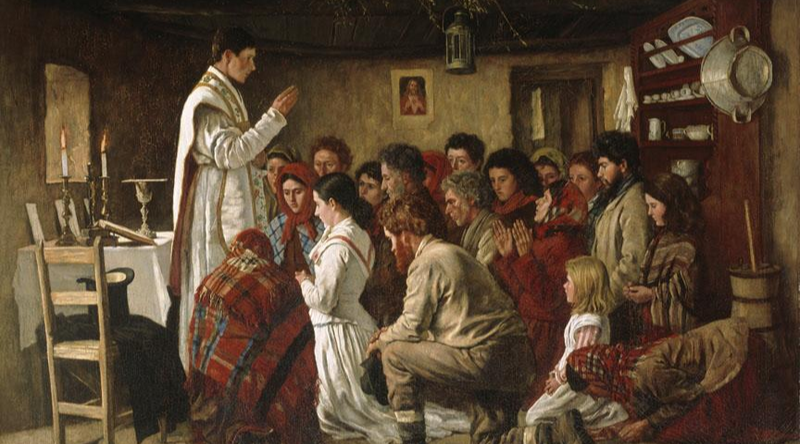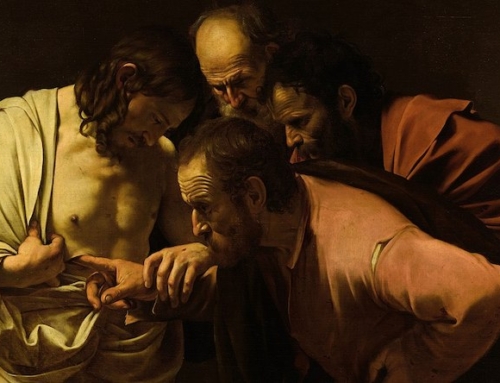This past July was an interesting month for the Eucharist.
Many thousands of men and women drew close to our Eucharistic Lord at the tenth National Eucharistic Congress and along the routes of the National Eucharistic Procession. A few weeks later, the Last Supper was mocked on the international stage at the opening of the Olympics.
These two events occurring in such close proximity made it clear that we Catholics cannot allow ourselves to act with indifference towards the Eucharist. As the source and summit of the Christian life, the Eucharist is our touchstone. What we believe about the Eucharist and how we act on that belief is a central aspect of our relationship with Christ and his Church. Practicing reverence for the Blessed Sacrament, then, is a sure way to increase devotion and integrate faith in our lives towards the perfection of love. Renewal and revival in the Church depend on our relationship with the Eucharist. Each of us can begin his own personal Eucharistic revival on the foundation of Eucharistic reverence.
By the grace of faith our intellect recognizes the truth of the words of Christ and affirms the dogma of the Real Presence. By faith we see that Truth himself speaks truly when he says, This is my body. . . this is my blood.
Our belief in the Real Presence, however, cannot remain mere belief.
Faith is ordered to action; ultimately, it is ordered to love. The flame of faith grows to express love for God or it grows cold and is stamped out by our indifference (ST II-II, q. 15, a. 1). Our knowledge and action are intimately connected. If we do not actualize our belief, our understanding of the Eucharist begins to feel like a meaningless mental proposition. Our minds cannot sustain the dissonance between what faith tells us and what our actions seem to deny. But even a fading faith can be brought back to an intense flame by attention and purposeful action.
Though we can neither see, touch, nor taste the veiled presence of Jesus Christ in the Eucharist, we know by faith that the Most High God has made himself present in a real and not merely symbolic way. We can show our reverence for this awesome condescension in a host of ways both large and small, from ensuring that we are not in a state of grave sin when we receive Communion to taking the few seconds to genuflect (or bow) fully when we cross in front of the Tabernacle. Our acts flowing from the graced knowledge of Christ’s presence (e.g., dressing up for Mass, fasting before Communion, paying attention to consuming every particle of the Host, etc.) lead us to a deeper love for our Eucharistic Lord as we bring our whole life into harmony under the aspect of faith.
That is the twofold point of Eucharistic reverence: to demonstrate our love for Christ and open ourselves to a deeper love of him. Our reverence does not change the Eucharist any more than our disregard does, but our reverent actions certainly affect us (ST II-II, q. 81, a. 7). By preparing to receive the Body of Christ with reverence we dispose ourselves more perfectly to the grace offered in the sacrament: union with Christ.
By a triumph of his love, God descends to meet us in the Most Holy Sacrament of the Altar. If this fact does not move us to reverence . . . hope . . . love, we do not understand what the Eucharist is. The Eucharistic Revival is not an impersonal policy initiative taken on by the American hierarchy. It is an effort to open eyes and hearts to the reality of Christ’s loving presence and thereby change lives. Our personal revivals are the foundation of this effort; only we can allow God to take hold of our hearts.
Jesus, my Lord, my God, my All,
How can I love thee as I ought?
And how revere this wondrous gift,
So far surpassing hope or thought?
Sweet Sacrament, we thee adore;
Oh, make us love thee more and more.
✠
Image: Aloysius O’Kelly, Mass in a Connemara Cabin







